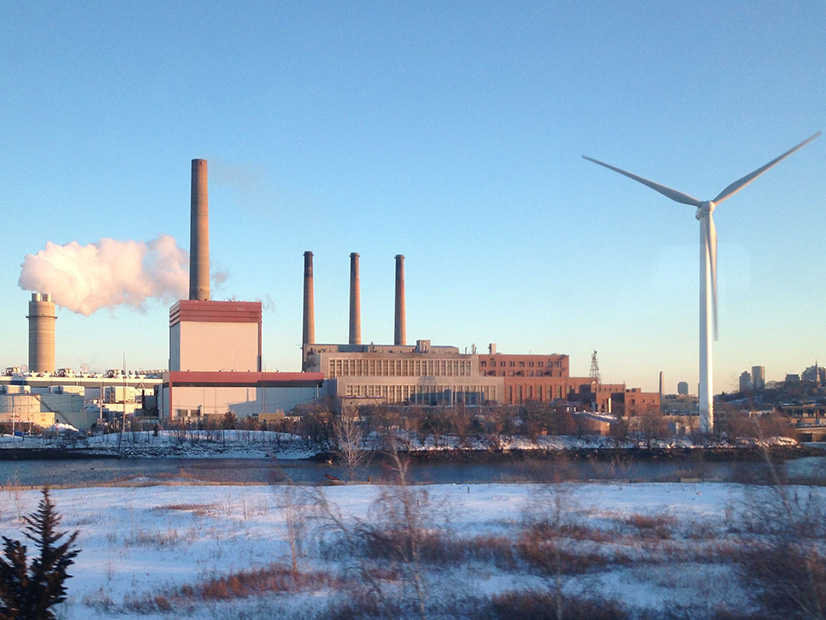
Environmental justice is taking center stage in the latest Regional Greenhouse Gas Initiative (RGGI) program review now underway.
“[Participating RGGI] states recognize there are challenges related to environmental justice and equity and challenges faced by overburdened and underserved communities, and we commit to listening and better understanding how those issues can be addressed,” Valerie Gray, program administrator at the Delaware Department of Natural Resources, said on Tuesday.
Justice and equity considerations were among the topics that RGGI sought input on during a public engagement session for the program’s third review since its launch in 2009.
During the session, Phelps Turner, a senior attorney at Conservation Law Foundation Maine, called on RGGI to allocate at least 70% of program investments to overburdened communities and to conduct equity-specific analyses.
“The program should conduct equity analyses to show prior investments and demographics of beneficiaries of RGGI investments and to show what power plants have emissions increasing or decreasing and the demographics of impacted residents and workers,” Turner said.
While RGGI has delivered many benefits, such as clean air and energy savings, “the program falls short when it comes to ensuring that those benefits are equitably delivered,” Jordan Stutt, carbon programs director at Acadia Center, said during the session.
Some participating states, he said, have “laudable” equity measures in place already, but the program should ensure that environmental justice policies are required for all its jurisdictions.
“In the same way that the model rule requires certain critical program elements to be implemented consistently across the region to ensure effective program operation, baseline measures to ensure equitable outcomes must also be required at the regional level,” he said.
The public input session will help RGGI develop an update to its model rule, which is the base of the legislation and regulations that each of the 11 program states developed to authorize their participation. RGGI states include Connecticut, Delaware, Maine, Maryland, Massachusetts, New Jersey, New Hampshire, New York, Rhode Island, Virginia and Vermont.
Pennsylvania and North Carolina are both in the process of becoming participating states.
Pennsylvania could begin participating sometime in 2022, according to Brian Woods, an environmental analyst with the Vermont Department of Environmental Conservation. North Carolina is farther behind Pennsylvania in the process to adopt RGGI regulations, so the state likely would not begin participating any sooner than 2023, Woods said.
Emissions Cap
RGGI completed its first program review in 2013 and its second in 2017, according to Lois New, a representative of the New York State Department of Environmental Conservation.
After the first review, she said, the states reduced the program’s regional emissions cap from 165 million tons in 2013 to 91 million tons in 2014 to better align with current emissions. Following the second review, the states committed to a continued emissions cap decline of 30% from 2020 to 2030. The cap bounced back up after New Jersey reentered the program and Virginia started participating at the beginning of this year.
The current emissions cap is now at 119.8 million tons, and that decreases by 3.7 million tons per year through 2030. Three RGGI auctions this year have resulted in $574 million in revenues for participating states, and the last auction of the year is scheduled for Dec. 1.
RGGI sought input during the public comment session on the trajectory of the cap before and after 2030.
Rapidly changing climate policies and scientific data on climate change point to a need to design the trajectory of the cap to reach zero emissions by 2035, Turner said.
Chris Phelps, state director of Environment Connecticut, agreed that the update should include a commitment to the cap declining to zero, but he did not support a specific target date.
That commitment, he said, would ensure that the emissions cap aligns with the ambitious climate mandates many states in the region have put into law.
Review Timeline
RGGI states are working now to develop assumptions for an integrated planning model that will inform a base case for the program review, according to Rupa Deshmukh, senior research scientist at the New Jersey Department of Environmental Protection. A public meeting in December will allow stakeholders to provide input on those model assumptions, she said during the session.
The base case, she added, will reflect the current RGGI cap and relevant state policies that are underway and will be available for public review next spring. Modeling for an additional policy case will analyze potential RGGI policy changes.
“These results will have projected allowance prices, emissions and other impacts related to the electricity sector and the RGGI carbon market,” Deshmukh said.
Separate economic modeling will begin next summer to examine the effects of RGGI implementation, with projections on employment and other economic growth indicators.
Together, all the modeling will help RGGI states consider potential changes to the program’s model rule, which they will release in draft form next fall. After considering the draft updated model rule with public input in December 2022, Deshmukh said, the states will conclude the program review and begin individual rulemaking processes to align their regulations with the update.


